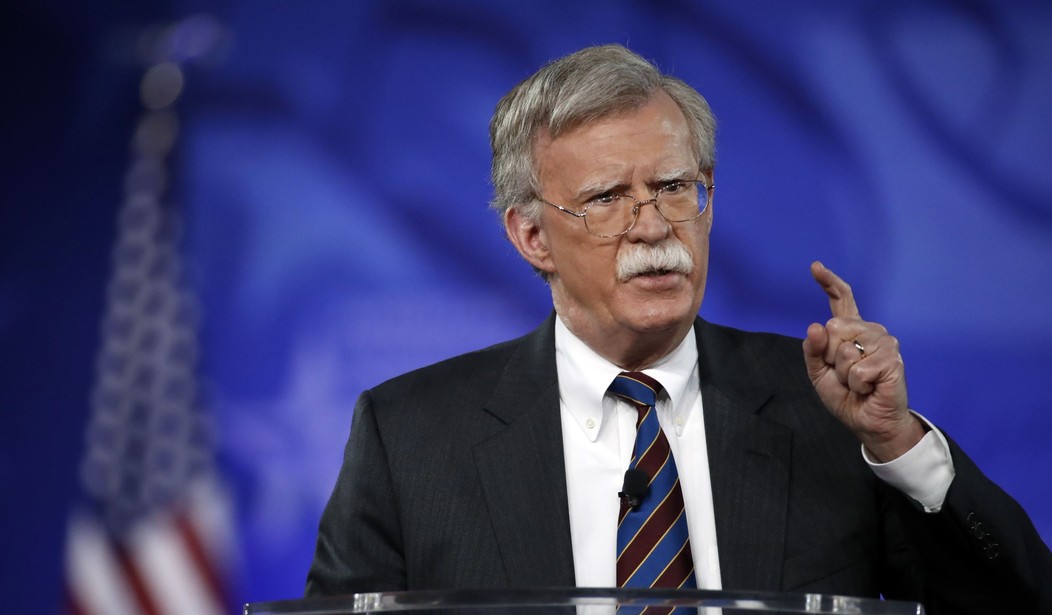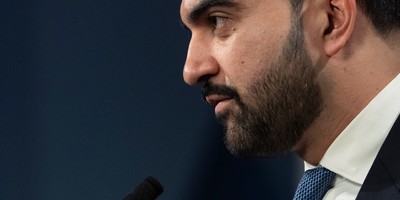The appointment of John Bolton’s as National Security Advisor has given rise to lively debate in American foreign policy circles. The discussion seems all the more imperative in light of the upcoming May 12 deadline for sanction waivers under the Iran nuclear deal known as the Joint Comprehensive Plan of Action (JCPOA).
Ultimately, the conversation about both Bolton and the JCPOA is more than a debate over his particular positions and personal style, or the merits and failings of the nuclear deal. Rather, it differentiates two distinct schools of thought. One views Tehran as a potentially reliable negotiating partner, that can be wooed into changing its conduct and acquiescing to international demands. The other recognizes the need for a firm policy in dealing with a regime that will neither submit to international norms nor listen to reason.
That firm policy does not necessarily involve military action, but it does seek to present the Iranian regime with circumstances in which the cost-benefit analysis makes further aggressive action and defiance of international norms untenable. In fact, the threat of war is not even the most effective way of creating such circumstances. A policy that isolates the regime while promoting the democratic ambitions of the Iranian people would be far more effective.
Some might object that this is an unproven premise, that it is not clear that the Iranian people have the organizational capacity to present a serious threat to the regime’s hold on power. But one would also have to acknowledge that the policies of negotiation and appeasement have proven ineffective for more than three decades.
The West has reached out over and over again to “moderates” within the Iranian regime, like Mohammad Khatami and Ali Akbar Rafsanjani, and most recently the current president, Hassan Rouhani. In each case, the outcome has been an escalation of Iran’s hardline policies and destabilizing behaviors, rather than their retraction. This has been detrimental not only to Western interests in the region, but also to the fortunes of the Iranian people. And that has in turn stoked their resentment and their readiness to throw off the regime that holds them in bondage.
Recommended
These facts were underscored in December and January, when mass protests rocked every major town and city in Iran, giving rise to slogans like “death to the dictator” and explicit calls for regime change. Beyond highlighting the fallacy of Western optimism about “moderation,” the protests also pointed to the likelihood of success for policies that recognize the disaffection of Iran’s populace with its rulers. The regime’s struggle to suppress those protests exposed its own weakness. In their wake, Supreme Leader Ali Khamenei was even compelled to admit that the leading Iranian opposition movement, the People’s Mojahedin Organization of Iran (PMOI/MEK), was a driving force and thus a significant threat to the regime’s hold on power.
For years, the mullahs sought to dismiss the MEK as lacking in domestic support and as decimated by Tehran’s brutal efforts to destroy it. In the summer of 1988 alone, some 30,000 political prisoners were put to death as part of that effort. All told, upwards of 100,000 MEK activists have been killed. Yet the recent anti-government protests made it clear that the group’s democratic message and commitment to regime change appeal to ever-larger portions of the population, including poor, rural Iranians long cast as politically inactive or even supportive of the clerical regime.
The MEK has also been gaining traction abroad. Its support among American politicians is bipartisan, including prominent Democrats and Republicans like Newt Gingrich, Howard Dean, Rudy Giuliani, Bill Richardson, and General James Jones, who served as National Security Adviser under the Obama administration. Another of the MEK’s friends is the new appointee to that position, John Bolton. Clearly, the Iranian Resistance is winning more widespread acceptance at a time when mainstream American politics is more receptive to the long-neglected policies that would promote its democratic aims.
This shift could not come be more timely. Iran’s recent nationwide uprising was not a one-off event. Many experts have suggested that protests will resume, perhaps with even greater strength, in response to the regime’s repressive response. Indeed, Maryam Rajavi, the president of the National Council of Resistance of Iran (NCRI), recently called for the new Iranian calendar year to be “a year full of uprisings.”
Activists continue to be arrested and public gatherings disrupted. Evidently, Tehran is taking this threat seriously. As well it should, because the ongoing efforts of the Trump administration, with its new foreign policy staff, suggest that the era of appeasement is over. Advocates of the alternate school of thought now have a unique opportunity, to accomplish what Sun Tzu called “the supreme art of war”: to subdue the enemy without fighting.
At this exceptional juncture, we must recognize that the mullahs can be subdued, and that the US can put itself on the right side of history by supporting Iran’s domestic push for a free, democratic future. To do so would be a triumph for the Iranian people, for American interests, and for the Middle East as a whole. Such an accomplishment would indeed go down in history, and be acclaimed by all Americans and all defenders of democracy, whatever their politics.
Ken Blackwell served as the U.S. Ambassador to the United Nations Human Rights Commission in the George H. W. Bush Administration.
























Join the conversation as a VIP Member